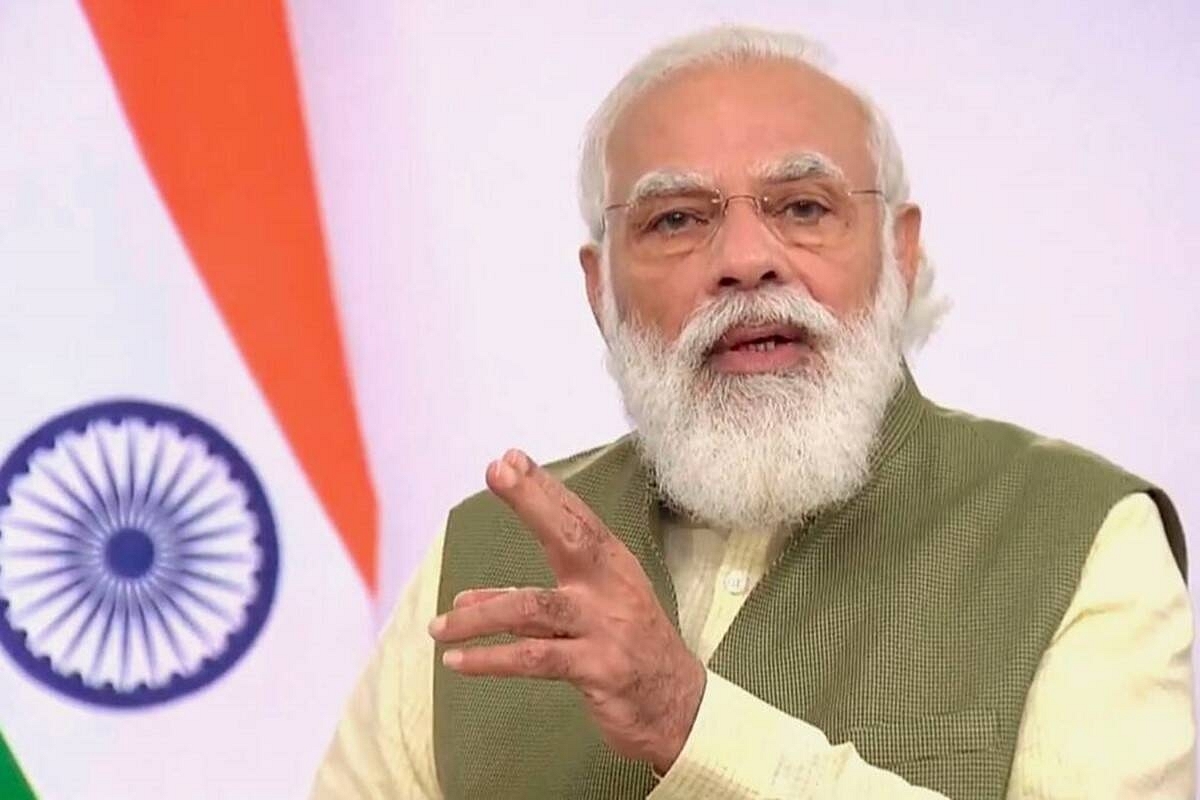Politics
Amrit Kaal To Vinash Kaal: Modi Must Read The Riot Act To States Seeking A Return To Old Pension Scheme
- OPS will convert Amrit Kaal into Vinash Kaal over the next two decades.
- Competitive electoral politics is clearly the problem.

Prime Minister Narendra Modi. Source: PTI
A major reform in pensions, conceived during the Atal Bihari Vajpayee regime and implemented nationally by Manmohan Singh’s government, is being undermined by five non-BJP state governments — Himachal Pradesh, Chhattisgarh, Rajasthan, Punjab and Jharkhand.
These governments have announced a reversion to the old pension scheme (OPS), under which pensions are guaranteed and related to the last salary drawn, and benchmarked to inflation, and periodically revised for government staff.
Put simply, the OPS is a tax on future generations, since governments typically do not provide for future increases in pension liabilities.
They pay up only when pensions are due.
The National Pension Scheme (NPS) that replaced OPS in 2004 defines contributions, not benefits.
Pensions can thus vary depending on the accumulated corpus, and the monthly annuities depend on prevailing conditions in the debt markets at the time of retirement.
The kind of annuities purchased from the accumulated corpus also determine actual amounts paid out to pensioners every month.
Currently, seven types of annuities are offered by the Life Insurance Corporation and other annuity providers, and the returns on some of these are underwhelming.
Put simply again, the NPS spares state exchequers from ever-rising future pension burdens which ultimately eat into public spending on more important heads like education, health and infrastructure.
Translated, this means states will end up paying those who are retired by cutting the very branch on which future growth and jobs and tax revenues depend.
OPS is bad economics, but possibly good short-term electoral politics.
This is demonstrated by two facts: one, though BJP-ruled states have so far held the line on sticking to NPS, both Karnataka and Maharashtra have indicated that they may reconsider, since the opposition parties have already said they would implement OPS if elected to power.
The second fact is positive short-term economics: when states opt for OPS, they may save money as they don’t immediately have to pay their own NPS contributions.
But this is about storing trouble for the future, possibly in the years after 2034, when the first batch of NPS retirees starts getting their pensions.
According to an analysis by The Economic Times (7 March 2023), states already spend more than a quarter of their own tax revenues (ie, excluding contributions from the Centre) on pensions.
If all states went for OPS, by 2046-47 this proportion would rise to over 40 per cent.
For the five poorer or highly indebted states that have currently opted for OPS, this figure would rise to over 64 per cent.
Two-thirds of their own taxes will go to paying for the pensions of their old retirees.
OPS will convert Amrit Kaal into Vinash Kaal over the next two decades.
Competitive electoral politics is clearly the problem.
In tightly contested elections, the votes of a large number of state employees now on NPS can tilt the balance in favour of one party or the other.
This factor is said to have been crucial for the Congress to win Himachal in a close vote last year.
Is there a way out?
There could be two possible solutions: one is to force states to shift to OPS only if they make current provisions for likely OPS payouts in future, based on actuarial studies, instead of opting for a pay-as-you-go strategy.
There should be a sequestering of funds over and above the money saved on contributions to NPS.
Second, OPS should be a choice left to employees, where they can choose to increase contributions now (with additional contributions from states) in order to receive higher pensions later.
The tradeoff is this: you have to accept lower current take-home salaries in order to have higher pensions later.
The best option, which states hovering on the brink can opt for, is to let retirement savings remain with NPS, but promising bonus payouts to retirees over and accumulations if the total corpus is lower than a certain minimum.
But here too additional provisions equal to, say, 2 per cent of state NPS contributions should be made now and not later.
The Narendra Modi government must call a meeting of state finance ministers and read them the Riot Act.
The next Finance Commission should be asked to recommend specific measures to restrict grants to states that opt for OPS without providing for the increased outgo in advance.
Before that, a panel of state finance ministers can be set up to review the NPS, and see how returns can be improved, and annuity options widened.
There is no free lunch, OPS or no OPS.
Support Swarajya's 50 Ground Reports Project & Sponsor A Story
Every general election Swarajya does a 50 ground reports project.
Aimed only at serious readers and those who appreciate the nuances of political undercurrents, the project provides a sense of India's electoral landscape. As you know, these reports are produced after considerable investment of travel, time and effort on the ground.
This time too we've kicked off the project in style and have covered over 30 constituencies already. If you're someone who appreciates such work and have enjoyed our coverage please consider sponsoring a ground report for just Rs 2999 to Rs 19,999 - it goes a long way in helping us produce more quality reportage.
You can also back this project by becoming a subscriber for as little as Rs 999 - so do click on this links and choose a plan that suits you and back us.
Click below to contribute.
Latest